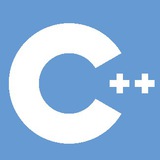Tags: #azure #linux #docker #visualstudio
https://blogs.msdn.microsoft.com/vcblog/2016/11/08/developing-linux-c-applications-with-azure-docker-containers/
https://blogs.msdn.microsoft.com/vcblog/2016/11/08/developing-linux-c-applications-with-azure-docker-containers/
Microsoft
Developing Linux C++ applications with Azure Docker containers
C++ tutorials, C and C++ news, and information about the C++ IDE Visual Studio from the Microsoft C++ team.
Tags: #cpp16 #bjarne #stroustrup #evolution #pastpresentfuture
https://channel9.msdn.com/Events/CPP/CppCon-2016/CppCon-2016-Bjarne-Stroustrup-The-Evolution-of-C-Past-Present-and-Future
https://channel9.msdn.com/Events/CPP/CppCon-2016/CppCon-2016-Bjarne-Stroustrup-The-Evolution-of-C-Past-Present-and-Future
Channel 9
CppCon 2016: Bjarne Stroustrup "The Evolution of C++ Past, Present and Future" (Channel 9)
https://CppCon.org Presentation Slides, PDFs, Source Code and other presenter materials are available at: https://github.com/cppcon/cppcon2016 This is a philosophical talk. It deals with ideals, aims,
Tags: #stackoverflow #string
https://stackoverflow.com/questions/40592298/why-would-you-compare-a-with-0x41
https://stackoverflow.com/questions/40592298/why-would-you-compare-a-with-0x41
Stackoverflow
Why would you compare 'A' with 0x41?
I was looking at some C++ code and found the following construct:
if('A' == 0x41) {
// ...
} else if('A' == 0xc1) {
// ...
} else {
// ...
}
I get a Visual Studio warning saying:
Warning...
if('A' == 0x41) {
// ...
} else if('A' == 0xc1) {
// ...
} else {
// ...
}
I get a Visual Studio warning saying:
Warning...
Tags: #minimizing #code #declarative #vs #imperative
The idea of good code varies from person to person, from language to language, and also varies between problem domains.
https://blog.demofox.org/2016/11/13/minimizing-code-complexity-by-programming-declaratively/
The idea of good code varies from person to person, from language to language, and also varies between problem domains.
https://blog.demofox.org/2016/11/13/minimizing-code-complexity-by-programming-declaratively/
The blog at the bottom of the sea
Minimizing Code Complexity by Programming Declaratively
Writing good code is something all programmers aspire to, but the definition of what actually makes good code can be a bit tricky to pin down. The idea of good code varies from person to person, fr…
Tags: #compiler #support #new #features
The following table presents compiler support for new C++ features. These include C++11, C++14, C++17 and various technical specifications.
https://en.cppreference.com/w/cpp/compiler_support
The following table presents compiler support for new C++ features. These include C++11, C++14, C++17 and various technical specifications.
https://en.cppreference.com/w/cpp/compiler_support
Tags: #expert #engineering #list
https://stephaniehurlburt.com/blog/2016/11/14/list-of-engineers-willing-to-mentor-you
https://stephaniehurlburt.com/blog/2016/11/14/list-of-engineers-willing-to-mentor-you
Stephanie Hurlburt
List of Engineers Willing to Mentor You — Stephanie Hurlburt
Look, even more mentors outside this list! I highly encourage you to message folks on these additional lists, there are much more people on them and they tend to be more free. More mentors: https://ishansharma.github.io/twitter-mentors/ More…
Tags: #variadic #templates
Today I will talk about some more features that have or will be added in that area in C++11, 14 and 17.
https://arne-mertz.de/2016/11/more-variadic-templates/
Today I will talk about some more features that have or will be added in that area in C++11, 14 and 17.
https://arne-mertz.de/2016/11/more-variadic-templates/
Simplify C++!
More About Variadic Templates - Simplify C++!
Today I will write about some more features that have or will be added in the area of variadic templates in C++11, 14 and 17.
Tags: #meetingcpp #berlin #report
https://www.micheleadduci.net/blog/2016/11/19/meeting-cpp-trip-report/#
https://www.micheleadduci.net/blog/2016/11/19/meeting-cpp-trip-report/#
www.micheleadduci.net
Meeting C++ 2016 trip report
This year I’ve finally made it to Meeting C++ conference in Berlin, which is quite funny because I live in this beautiful city and for me the “trip” part con...
Tags: #opengl #renderer #design
This design matches closely the idea of “Model-view-viewmodel” aka. “MVVM”
https://nlguillemot.wordpress.com/2016/11/18/opengl-renderer-design/
This design matches closely the idea of “Model-view-viewmodel” aka. “MVVM”
https://nlguillemot.wordpress.com/2016/11/18/opengl-renderer-design/
nlguillemot
OpenGL Renderer Design
Lately I’ve been writing lots of OpenGL programs for course projects and for-fun rendering side-projects. I’ve started to notice an overall design that works pretty well for these kinds…
Tags: #allocator #model #new #implementing
Judging by the recent amount of talks about the STL Allocator model it is a pretty well-known fact that is has some issues.
https://foonathan.github.io/meetingcpp2016.html
Judging by the recent amount of talks about the STL Allocator model it is a pretty well-known fact that is has some issues.
https://foonathan.github.io/meetingcpp2016.html
foonathan.github.io
Designing and Implementing a new Allocator model
This channel is part of the Silicon Network (@siliconnetwork), a network of channels and groups about tech and programming.
To discover all the members, visit the network at https://telegram.me/siliconnetwork
To discover all the members, visit the network at https://telegram.me/siliconnetwork
Tags: #intel #errors #bounds
https://randomascii.wordpress.com/2014/10/09/intel-underestimates-error-bounds-by-1-3-quintillion/
https://randomascii.wordpress.com/2014/10/09/intel-underestimates-error-bounds-by-1-3-quintillion/
Random ASCII - tech blog of Bruce Dawson
Intel Underestimates Error Bounds by 1.3 quintillion
Intel’s manuals for their x86/x64 processor clearly state that the fsin instruction (calculating the trigonometric sine) has a maximum error, in round-to-nearest mode, of one unit in the last place…
